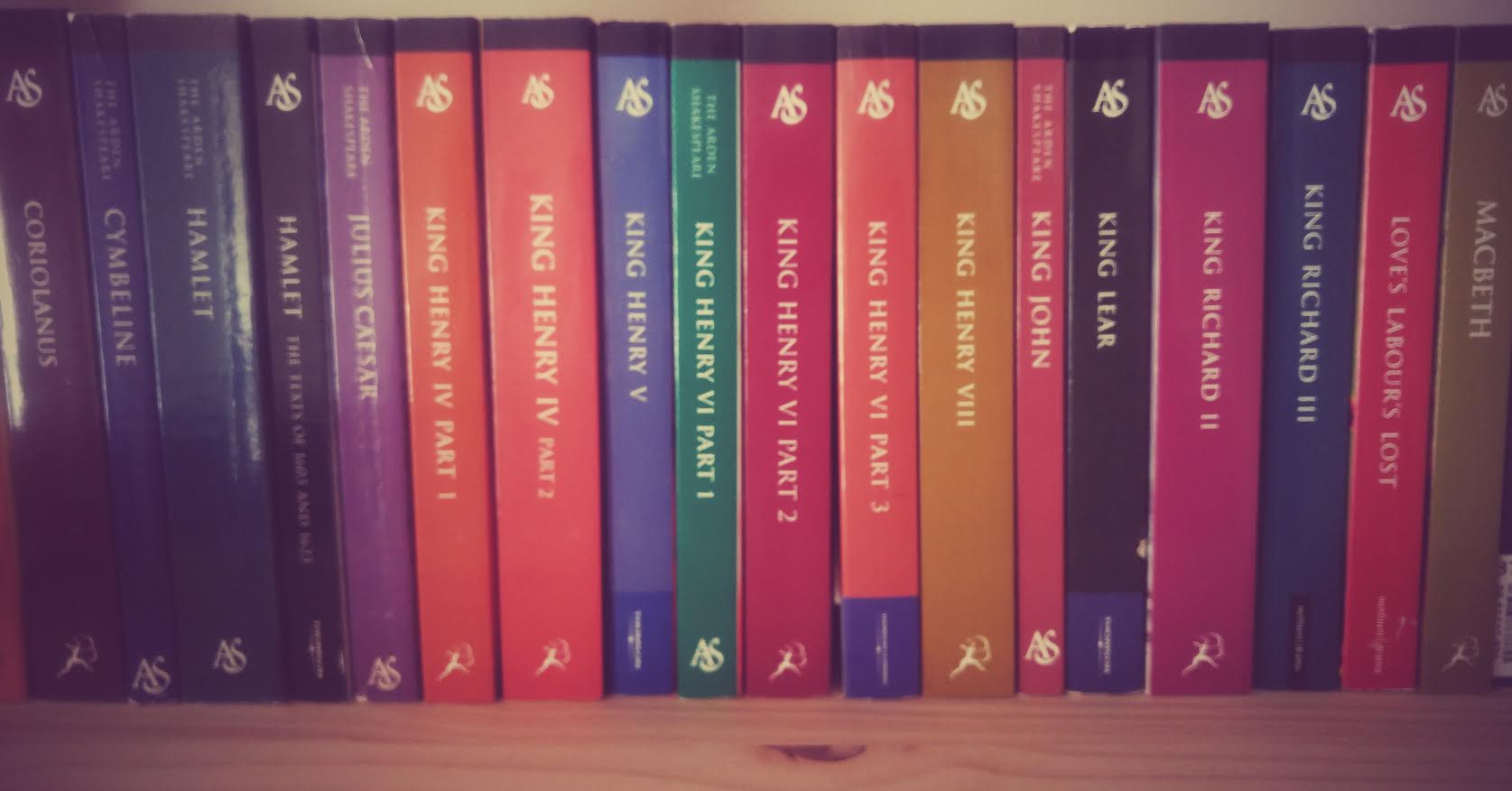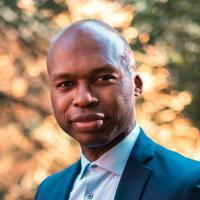-
Posts
1,632 -
Joined
-
Days Won
48
Dr. Old Bill last won the day on November 28 2024
Dr. Old Bill had the most liked content!
Profile Information
-
Location
Midwest
-
Application Season
Not Applicable
-
Program
Ph.D. in English
Recent Profile Visitors
Dr. Old Bill's Achievements

Cup o' Joe (10/10)
1.7k
Reputation
-
 bgt28 reacted to a post in a topic:
Tips for Applying to English Ph.D. Programs
bgt28 reacted to a post in a topic:
Tips for Applying to English Ph.D. Programs
-
 snow_owl reacted to a post in a topic:
Tips for Applying to English Ph.D. Programs
snow_owl reacted to a post in a topic:
Tips for Applying to English Ph.D. Programs
-
 Ruby33 reacted to a post in a topic:
Hello from the Other Side
Ruby33 reacted to a post in a topic:
Hello from the Other Side
-
 leguinian22 reacted to a post in a topic:
Hello from the Other Side
leguinian22 reacted to a post in a topic:
Hello from the Other Side
-
 The Penguin and Podiatrist reacted to a post in a topic:
Hello from the Other Side
The Penguin and Podiatrist reacted to a post in a topic:
Hello from the Other Side
-
 faridun reacted to a post in a topic:
Hello from the Other Side
faridun reacted to a post in a topic:
Hello from the Other Side
-
 faridun reacted to a post in a topic:
Tips for Applying to English Ph.D. Programs
faridun reacted to a post in a topic:
Tips for Applying to English Ph.D. Programs
-
 toad11 reacted to a post in a topic:
Hello from the Other Side
toad11 reacted to a post in a topic:
Hello from the Other Side
-
 Dr. Old Bill reacted to a post in a topic:
Academia Is a Cult
Dr. Old Bill reacted to a post in a topic:
Academia Is a Cult
-
 cleophila reacted to a post in a topic:
Hello from the Other Side
cleophila reacted to a post in a topic:
Hello from the Other Side
-
 alixxy reacted to a post in a topic:
Hello from the Other Side
alixxy reacted to a post in a topic:
Hello from the Other Side
-
 Dr. Old Bill reacted to a post in a topic:
Thesis or Comp Exam
Dr. Old Bill reacted to a post in a topic:
Thesis or Comp Exam
-
First of all, congrats on the admittance! I think the answer depends on whether you plan on going for the Ph.D. If so, then I think your rationale is good -- a thesis will give you a sustained body of writing that you can then use as a writing sample for applications, or perhaps publications etc. On the other hand, doing a version of comps will force you to read a bunch of works that should (in theory) be useful to you in the future. I had a hard time with comps in a Ph.D. program, but others haven't found it as difficult. It will depend on the expectations of your committee and your ability to read and retain a lot of information that you can use in an academic conversation. The thesis is probably your best bet, but one small caveat is that if the thesis is longer than 25 pages or so, you'll inevitably have to cut it down for writing samples and publications. That's not too big of a deal, but something to always keep in mind regardless.
-
Hey folks -- Old Bill here, reporting in for the first time in several years. Now that I've finished my Ph.D., I figured I would weigh in on a few things I learned throughout the process in the hopes that it will help your decision about applying to graduate programs, or what to do if you actually get accepted to one. First, a brief update on my experience. In a nutshell, I very much enjoyed the process of obtaining the Ph.D. I managed to do it in five years, though fair warning: I'm one of only two people in my cohort (which had around a dozen Ph.D. admits and several M.A. / Ph.D.'s) who got through it in that time. I think it's starting to become more common to take as much time as you have funding for, though my own personal circumstances (including a touch of "vaulting ambition," as Macbeth would say) caused me to want to finish in five years, no matter what. As of right now, I'm still not entirely sure what the next academic year holds, though I have secured adjuncting locally, which I'm fine with. I've had several interviews over the past six weeks, and that's apparently unusual -- it's more typical to not receive interviews until you actually have the degree in hand. But I think that may have more to do with a shift in employment expectations than anything unique about me personally. Anyhow, thinking about the job market is something comfortably down the road for many of you, though I'm guessing you've already had a great many people tell you about how awful the academic job market is. They're all correct, of course. If you have a fairly limited idea of what kind of institution you want to work at (i.e. an R1 institution, a SLAC etc.), and are adamant you need to teach your special subfield (i.e. 18th century, literature and medicine etc.), you're likely going to face a lot of disappointment. I applied quite broadly -- to generalist positions at institutions of all kinds, ranging from R1s and R2s to community colleges to SLACs to HBCUs and others. Most of those were tenure track jobs, but some one-year positions and a few seemingly permanent full-time gigs were sprinkled in there too. To be clear, I was never indiscriminate about where I applied, but was instead open to a lot of options and adapting as needed. Out of forty-four applications, I've had four interviews (thus far), which has a yield of one interview out of eleven applications. And that's considered good! I say all this relatively personal stuff simply to highlight that you ought to be aware of what the situation is like before you even decide to draft those Ph.D. program application materials (assuming an academic job is your initial hope, that is). As for myself, I was quite aware of the state of the market when I started down this path, and nothing I've experienced has surprised me too much. Many of the folks I know who have burned out, disappeared, or otherwise turned against the very idea of an academic career have done so out of disillusionment -- not having a realistic sense of how the hard work of a Ph.D. (and it's very, very hard at times) doesn't pave a clear road to the seemingly glorious tenure-track position. So don't be deluded. You can spend five, six, seven years of doing this and be faced with poverty and no secure job prospects. That's simply true. The question is whether or not you are mentally prepared to do that, and whether the payoff is worth it (to you personally) in the long run. It certainly was for me, but in this I do have to admit I'm something of an exception. Assuming you still want to go down this path ("no power in the 'verse can stop me," I hear you cry...), I just have a few tips that I didn't quite glean from GradCafe's heyday. First, program fit is important, but advisor fit is equally so, if not more. If you're in the enviable position of having multiple offers once your applications are out there, make a point of talking to as many of your potential advisors as possible. And here's a very, very, very important point: don't default to the person with the best publication record or reputation. That only matters in some rare circumstances. It is far more important to find an advisor who you vibe with -- someone who has the same kind of working style as you, or has the kinds of expectations of you that you want. And here's another related very, very, very important point. Hell, I'll even put it in all caps: YOU CAN ALWAYS CHANGE YOUR ADVISOR. This process inevitably feels terrifying when you're early in the program, but there are almost never any hard feelings on the part of the advisor, and it's exceedingly rare for them to be at all vindictive. I changed my advisor after my comprehensive exams -- part of it was due to fit over field (I'm a poetry person, my first advisor was not), but the other part of it was working style. My first advisor was a very top-down taskmaster sort, which worked great for a lot of his other students. But I realized that that style doesn't work well for me. I like more of a hands-off approach, and to feel that I can work on my own for a month or two with self-imposed deadlines rather than advisor-imposed ones. I switched to an advisor that was more this way, and I can honestly say that I enjoyed the dissertation process as a result. I did my own thing, reached out as needed, received a boatload of constructive criticism when I was ready for it, and never felt pressured or coerced. The moral of the story here is that your choice of advisor may be the single most important choice you make in a Ph.D. program. I put that in bold, because it's something I really never expected once admitted. One other tip is something that I'd heard, but never really internalized: think about publication options early and often in your graduate career. You're going to start out green, of course...but literally everyone does. Once you've made it through a year of the program, you'll likely have a good sense of A.) whether you want to keep doing it, and B.) what, specifically, you want to focus on. Yes, I know that you'll enter the program thinking you already know your focus, but more often than not students switch it up. And that's to be expected. But publications are a key metric on the job market for most positions. I did manage to get a nice publication during the writing of my dissertation, but I do wish that I had been thinking more seriously about it beforehand. The jury's out on whether having a single academic publication will hurt me on the market, but whether it does or not, the simple truth is that more can only be helpful (and ignore people who tell you it's too early -- editors and reviewers will screen out substandard work; let them be the ones to do it). This post is getting long, so I'll just end with this little suggestion that I'm sure is going to sound impossibly twee: approach the academic path (from applying to Ph.D. programs to your scholarship in one and beyond) from a standpoint of joy. I'm not trying to Marie Kondo you here, or spout toxic positivity, but my observation is that a large portion of success and well-being in academia is attitudinal. There are many bitter academics out there who don't seem to love what they do. Resist that. It doesn't have to be the norm. Moreover, most of the academics I have gravitated toward do love their work and their students. Approaching this from a standpoint of joy simply seems to work far better than from a standpoint of "struggling through" or "grinding away." Find what you love about the process, and embrace it. Hopefully this is helpful to some of you! I know GradCafe isn't as populous as it used to be, but I'm guessing there are still enough lurkers to make a post like this worthwhile. Be well, folks, and good luck in your academic journeys!
-
I have a question for Old Bill. I feel stuck and need a little friendly guidance. I have been teaching High School ELA for 15 years (on and off), and have a M.A. in Humanities from a cheapo California State Uni. My unofficial mentor in the work world told me to get an English M.A. if I want to teach English at a community college...they only want square pegs to fit square holes- won't look at a Humanities degree. Now I have a couple of problems...
1. Go for an additional M.A. online (Arizona State, University of Texas/Tyler)
2. Try and get a Phd. (might mean taking time off work and running up a lot of debt)
3. Find a program that connects my education to work at the college level... research/qualifications that turns into a teaching post.
My life goals have been to get out of the teen world and start working with adults. This is the master plan. I am just not clear about how to get there.
Cheers! Barnaby (England fan- UK national living in Los Angeles)
-
unonu started following Dr. Old Bill
-
surprise_quiche started following Dr. Old Bill
-
Abdul Quayum started following Dr. Old Bill
-
This is mostly correct, but I would add that it also depends on what field you're in. Some programs don't care much about what language you use to fulfill the requirement, so long as you can go ahead and fulfill it. But there are many subfields wherein certain languages are seen to have far more value. I'll be taking an intensive Latin course to fulfill my req, even though I'm an early modernist, and Latin will probably only have a moderate impact on what I study. I could brush up on my undergraduate Spanish to fulfill the req if I really wanted to, but my advisor is strongly suggesting I take Latin. In other words, sometimes it's not so simple as just fulfilling a req, but rather doing it in a certain way. Unfortunately, it's very much a case-by-case basis, depending on what you already know, what your probable field is, and what the program things you should do.
-
 Dr. Old Bill reacted to a post in a topic:
Everything I Always Wondered about Rhet/Comp but Never Asked
Dr. Old Bill reacted to a post in a topic:
Everything I Always Wondered about Rhet/Comp but Never Asked
-
 Dr. Old Bill reacted to a post in a topic:
Everything I Always Wondered about Rhet/Comp but Never Asked
Dr. Old Bill reacted to a post in a topic:
Everything I Always Wondered about Rhet/Comp but Never Asked
-
 Dr. Old Bill reacted to a post in a topic:
Making myself a better candidate
Dr. Old Bill reacted to a post in a topic:
Making myself a better candidate
-
 Dr. Old Bill reacted to a post in a topic:
Making myself a better candidate
Dr. Old Bill reacted to a post in a topic:
Making myself a better candidate
-
 Dr. Old Bill reacted to a post in a topic:
Once More, With Feeling; Or, The Joys of Revisions
Dr. Old Bill reacted to a post in a topic:
Once More, With Feeling; Or, The Joys of Revisions
-
 Dr. Old Bill reacted to a post in a topic:
Making myself a better candidate
Dr. Old Bill reacted to a post in a topic:
Making myself a better candidate
-
 Dr. Old Bill reacted to a post in a topic:
Once More, With Feeling; Or, The Joys of Revisions
Dr. Old Bill reacted to a post in a topic:
Once More, With Feeling; Or, The Joys of Revisions
-
 Dr. Old Bill reacted to a post in a topic:
Once More, With Feeling; Or, The Joys of Revisions
Dr. Old Bill reacted to a post in a topic:
Once More, With Feeling; Or, The Joys of Revisions
-
Sounds like you should get a second set of eyes on it. Once you read a document too many times, you lose all perspective and can't see the forest through the trees. Having others look over it, or just taking a few days away from it yourself, will ideally help you to regain perspective. Also, completely for what it's worth, pretty much everyone thinks their WS and/or SOP looks like a disaster at some point. Sometimes that's legitimate, but usually it's just our INTJ/INFJ/INwhatever selves making life difficult for us. P.S. Given the subject title, I'm highly disappointed that you didn't work in a reference to bunnies.
-
Actually, this sounds exactly like a SOP description to me...just in different words. When you really parse what they're asking for, it's the same as what pretty much every program is asking for: why are you interested in what you're interested in, what you plan to do in the future etc. I don't want to be too cavalier about it, since it's your top choice program, but my gut tells me that you'll be fine using your standard SOP format with a few minor tweaks as necessary. I suspect they make a distinction between what they're calling it and a "personal statement," because the latter can sometimes tend toward biographical life story etc. (such as in some programs that ask for both a "personal statement" and a "statement of purpose."). So they want an SOP, not a personal statement (ignoring for the moment the many programs that consider the two documents one and the same... )
-

2018 Applicants
Dr. Old Bill replied to WildeThing's topic in Literature, and Rhetoric and Composition
^ What a fantastic post. -
I started a topic about this situation back in my first application cycle (when I was still married). You might find some useful tidbits there. In general, it's a difficult subject, but not uncommon. It usually requires significant compromise on either your part or the SO's...and often both. In a very indirect way, my continuation down the academic path was a factor in my (very amicable) divorce. I don't say that to scare you -- just to emphasize that it's good that you're thinking of this now, because it is indeed a major consideration.
-

2018 Applicants
Dr. Old Bill replied to WildeThing's topic in Literature, and Rhetoric and Composition
It should be... The verbal is the only one that really matters (perhaps the AW to a lesser extent), and 163 is over 90th percentile, which some see as the benchmark. That being said, some of the schools you mentioned he'll be applying to might expect higher (whether they state it or not). A solid-but-not-exemplary GRE is likely not going to be a deal-breaker if everything else is strong, but higher is always better. I personally wouldn't retake the GRE with a 163, but if your hubby has the time and money, and thinks he has a solid shot at bumping it up, it can't hurt. -
Fellow OSUer and long-time GCer @Ramus and I had this exact same conversation over coffee yesterday: we're both extremely grateful to have gone through an M.A. program first. In his case, it was a choice between an M.A. at a strong program and a Ph.D. at a lesser (but still decent) program, and in my case it was my best and only option (heh), which initially felt like a consolation prize since I had only applied to Ph.D. programs, but proved to be an enormous boon. Simply put, the M.A. is a bridge: you get the grad school experience (rigorous courses, high workload, deeper scholarship etc.), without the long-term expectations. Most of what you do in an M.A. is coursework, sometimes with a lengthy thesis, and sometimes with a shorter Capstone project. In other words, the program is more contained and compact. For me, having the M.A. experience taught me how to do good research -- real, honest-to-goodness academic research that delved into contemporary scholarship. This just didn't happen at the undergraduate level, and had I jumped straight from B.A. to Ph.D. (as I had intended), I'm sure I would have eventually found my footing and made out alright...but the learning curve, combined with the weight of expectations would have made the transition far more challenging. And I say this as a "non-traditional" student with a lot of work and life experience under his belt (read: I'm good at adapting to new situations). All of this is to say that while a large number of wonderful people (I'm thinking here of the "ghosts of GC past") have excelled when making the jump from B.A. to Ph.D., my own experience, combined with the experience of several others I have talked about it with, suggests that getting the M.A. first will generally strengthen you and make you a better scholar.
-

2018 Applicants
Dr. Old Bill replied to WildeThing's topic in Literature, and Rhetoric and Composition
I'm loath to counter what a professor has said...especially when different perspectives in this process can be equally valid! But that being said, I've been told by professors that you apply for the people...and that advice has seemed to bear fruit for a lot of folks. But it's certainly a question worth pondering at length. I will just say that when it comes to writing the SOP, it's generally expected that you highlight two or three faculty members you'd like to work with. To do so, you really have to figure out why those people would want to work with you and vice versa. It's usually pretty obvious when one is just name-dropping in a SOP, and when there are obvious and natural connections. Well, I recognize the cost factors etc., seeing as how the average application is $100, when you factor in the cost of sending GRE scores etc. But by that same token, when you're dealing with 5% acceptance rates, there's really a "more is better" element to the process, provided you're a competitive applicant (which it sounds like your husband is). Some great applicants get into six or seven programs out of twelve applications. But some also get into just one...and some (alas) don't get into any. We had one person here in the last cycle who applied to eight programs and got into seven of them. But we also had a few who applied to more than ten, and were shutout. Basically, there are no guarantees, no matter how strong of a candidate you are, so if you can afford to play the odds a bit by applying to more programs, it likely increases your chances (again, provided the application is otherwise competitive). -

2018 Applicants
Dr. Old Bill replied to WildeThing's topic in Literature, and Rhetoric and Composition
So, your husband's "stats" are great, of course, especially when you present them the way you do. Based on how it looks, he should be a strong candidate. The problem, however, is that, believe it or not, most applicants are going to have lists that look quite similar. It's very important to not think of this as a quantitative process -- in some respects it is (more on that later), but after going through two cycles myself, and being an active GCer for three, it has become abundantly clear that "fit" trumps all...and "fit" is both difficult to define, and works both ways. If your husband's specific research interests (i.e. more specific than postmodern/contemporary American lit) don't mesh well with the faculty members he has highlighted at his chosen programs, the best academic "stats" in the world will likely not garner him admission. This is why the statement of purpose (SOP) and the writing sample (WS) are so important: the "stats" will get him through any unofficial cutoffs (e.g. GPA, GRE etc.), but when the field committee of contemporary Americanists are distributed the dozens of otherwise worthy applications in their area, they're going to be looking for compelling research and an interesting approach in the WS, and demonstration of significant potential in an intriguing direction in the SOP. All admissions committees (adcoms) work differently, but this methodology seems to be a common denominator. I had a bit of success in this last cycle, getting into (and accepting the offer) at one of my top choice programs, based on how a few faculty members (and the program as a whole) meshed with my interests. My SOP and WS worked together -- the former talked about how I can continue the research evidenced in the latter, and how the same approach can be applied to other works (in my case it was theories of editions in early modern books of poetry). A month or so ago I had a lengthy conversation with my advisor at my new program, discussing a paper I was considering submitting for publication, based on what two professors at my prior institution had recommended. My new advisor thought the paper was good in many ways, albeit not necessarily publishable, since it was doing two or three different things (he suggested that publishable articles usually have one core idea that is sustained); a key comment he made at the outset of our conversation, however, spoke volumes to me about the admissions process...even though the process wasn't mentioned specifically. He asked how the paper came to be written, and why I chose the methodologies I did. Once I told him that it was for a book history class, but that I was encouraged by the professor to take the paper in a different direction than a purely book history approach, he brought up my research intentions as were stated in my SOP, and mentioned that he hoped to see work that was more like what I had proposed. It's not hard to read something significant between the lines: he was clearly on the adcom, and he was clearly compelled by my stated interests when he first read my SOP and WS. There is little doubt in my mind that he had a hand in choosing me because he was compelled by the work I had done and the work I said I wanted to do (as opposed to the kind of work on display in the paper I sought to publish). This is but one lengthy, personal example, but I truly think it shows how most "stats" are secondary to clear and compelling interests stated in the two main written documents. That's a rather narrow and exclusive list. My biggest question would be whether or not there are three or more faculty members at each institution doing the kind of work your husband really wants to do. Does he fit with them? Will they fit with him? Which leads me to... Geographical considerations are important, of course...especially when you have a significant other or family obligations. And if you have to be tethered to one geographical area, the Northeast is probably the best when considering grad schools. That being said...just remember that most graduate programs in English receive upwards of 200 applications (some potentially triple that number). And despite all of what I mentioned above about the primacy of SOP / WS and fit, and that admissions generally isn't a qualitative process, from another perspective it most assuredly is. If a program accepts, say, fifteen applicants, with an expected cohort of eight or nine, the percentage of admitted students is well below 10%...and potentially below 5%. Countless factors could make an otherwise "perfect fit" applicant miss the cut -- perhaps a program accepted three contemporary Americanists last year, and they don't want to oversaturate that area group. Perhaps two of the faculty members listed in the SOP as POIs (professors of interest) are on sabbatical, or their research interests have changed. Any number of intangible factors can knock an excellent candidate out of the running. As a result, spreading your net wider (both in terms of geography and number of programs) increases your chances on a very basic quantitative level. Anyhow, these are my admittedly long-winded thoughts on you and your husband's situation. Hopefully this makes sense and is at least somewhat helpful! -

2018 Applicants
Dr. Old Bill replied to WildeThing's topic in Literature, and Rhetoric and Composition
No.




.thumb.jpg.10c687382b14b659fcfb828585d448de.jpg)






